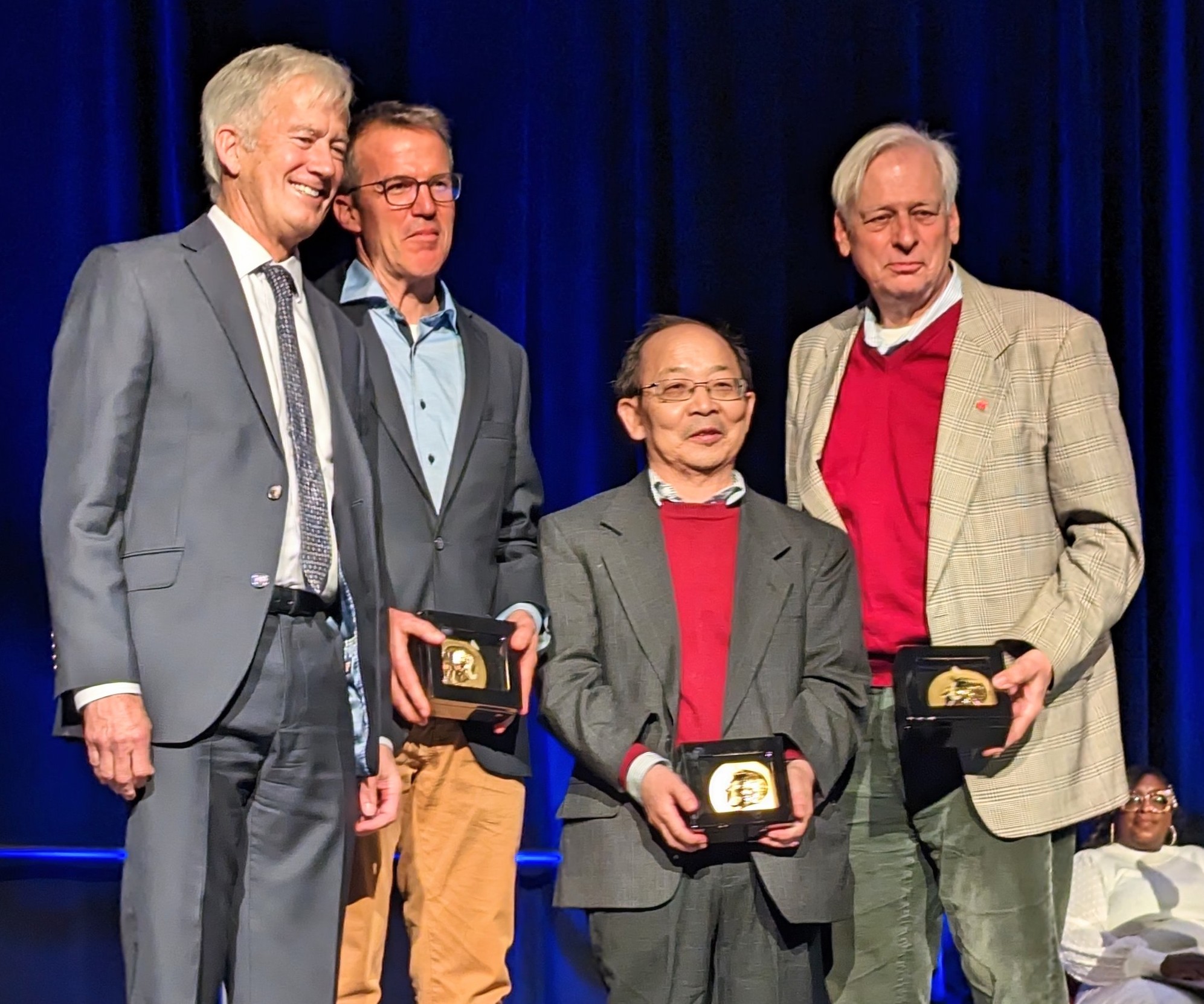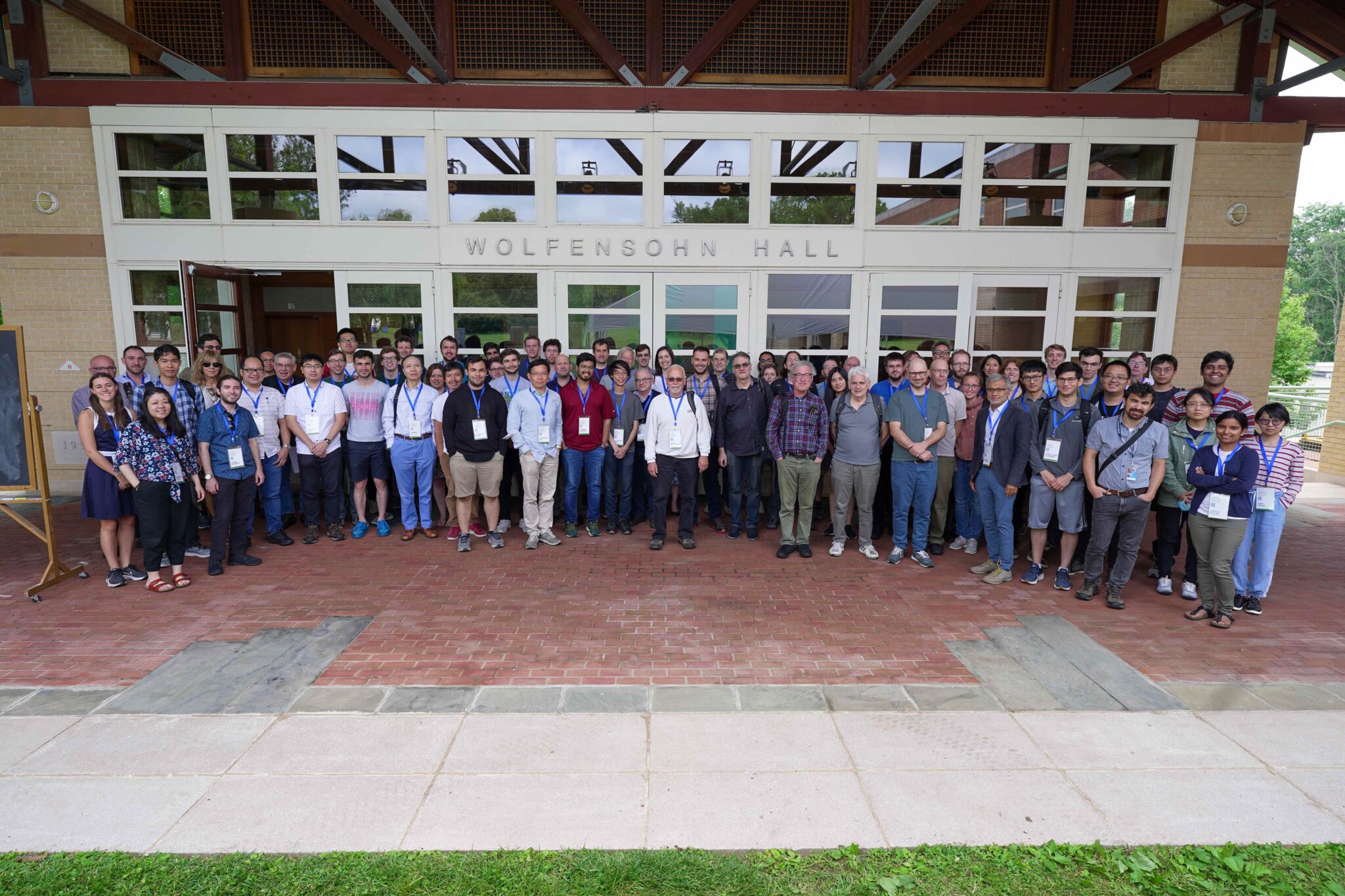
AIM's goal is to advance mathematical knowledge through collaboration, to broaden participation in the mathematical endeavor, and to increase the awareness of the contributions of the mathematical sciences to society. We are a U.S. National Science Foundation (NSF) supported research institute
Recent News

AIM at JMM 2025 in Seattle
AIM is proud to be a JMM partner. Each year, AIM will sponsor Special Sessions tied to AIM activities (workshops, SQuaREs, Research Communities, and Special Programs) along with an Invited Address associated with the Alexanderson Award and a reception. In 2025, look for these AIM-Sponsored activities while you’re at JMM.
The AIM booth: AIM is a mainstay in the exhibit hall. Stop by, chat with AIM staff, and learn about our various activities. Our PRIMES Scholars-in-Residence will spend some time at the AIM booth and will be happy to talk to you about the proposal process and their partnership with AIM. We will be at booths 511, 513, and 515 whenever the exhibits are open. Be sure to check out the Exhibit Hall Grand Opening Reception on Wednesday January 8, 2025, from 6:00-8:00 p.m.
Invited Address: Dmitriy Bilyk will give the Alexanderson Award Lecture, Energy minimization problems in analysis and discrete geometry, on Thursday January 9, 2025, from 10:50-11:55 a.m. in Ballroom 6E of the Seattle Convention Center. (See announcement below.) You can also see the Alexanderson Award winners get their medals at the Awards Celebration on Wednesday January 8, 2025, from 4:45-5:45 p.m. in Ballroom 6E of the Seattle Convention Center.
Special Sessions: The following special sessions are sponsored by AIM and tied to AIM activities in the past year. Math Circles for Makers, Creators, and Artists. Wednesday January 8, 2025, 8:30 a.m.-12:00 p.m.; Wednesday January 8, 2025, 1:00-5:00 p.m.; and Thursday January 9, 2025, 8:30 a.m.-12:00 p.m. in Room 3B of the Seattle Convention Center. Applications and Generalizations of Zero Forcing. Saturday January 11, 2025, 8:00 a.m.-12:00 p.m. and 1:00-5:00 p.m. in Room 3B of the Seattle Convention Center. Energy Minimization: From Analysis to Discrete Geometry (associated with the Alexanderson Award Lecture by Dmitriy Bilyk). Thursday January 9, 2025, 1:00-5:00 p.m. in Room 3B of the Seattle Convention Center. Pedagogical Practices in Math Circles and Other Non-Traditional, Informal, and Recreational Math Spaces. Saturday January 11, 2025, 8:00 a.m.-12:00 p.m. and 1:00-5:00 p.m. in Room 3A of the Seattle Convention Center.
Professional Enhancement Program: Leveraging GitHub and AI for Mathematics Research and Teaching, presented by Steven Clontz and Oscar Levin. Part A, Wednesday, 1:00–3:00 p.m., and Part B, Thursday, 1:00–3:00 p.m. (Note that participation in PEPs requires pre-registration and an additional fee.)
Social Events: Join us at the AIM-sponsored Math Circles Dessert and Games Night Reception, Thursday, 8:00–9:30 p.m., Grand Ballroom C, Sheraton Grand Seattle. Or come find us at the Mathematical Institutes Open House, Thursday, 6:00–8:00 p.m., Metropolitan Ballroom A, Sheraton Grand Seattle.





